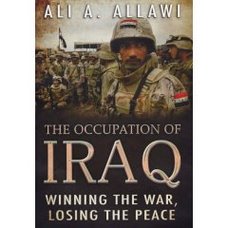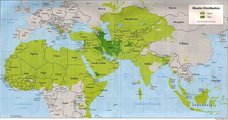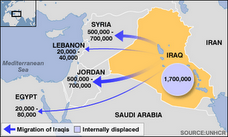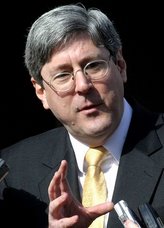The Other War: Iraq Vets Bear Witness, by Chris Hedges and Laila al-Arian, appears in the 30 July issue of The Nation
This Nation investigation marks the first time so many on-the-record, named eyewitnesses from within the US military have been assembled in one place to openly corroborate these assertions....
Veterans said the culture of this counterinsurgency war, in which most Iraqi civilians were assumed to be hostile, made it difficult for soldiers to sympathize with their victims--at least until they returned home and had a chance to reflect.
"I guess while I was there, the general attitude was, A dead Iraqi is just another dead Iraqi," said Spc. Jeff Englehart, 26, of Grand Junction, Colorado. Specialist Englehart served with the Third Brigade, First Infantry Division, in Baquba, about thirty-five miles northeast of Baghdad, for a year beginning in February 2004. "You know, so what?... The soldiers honestly thought we were trying to help the people and they were mad because it was almost like a betrayal. Like here we are trying to help you, here I am, you know, thousands of miles away from home and my family, and I have to be here for a year and work every day on these missions. Well, we're trying to help you and you just turn around and try to kill us." He said it was only "when they get home, in dealing with veteran issues and meeting other veterans, it seems like the guilt really takes place, takes root, then."
The Iraq War is a vast and complicated enterprise. In this investigation of alleged military misconduct, The Nation focused on a few key elements of the occupation, asking veterans to explain in detail their experiences operating patrols and supply convoys, setting up checkpoints, conducting raids and arresting suspects. From these collected snapshots a common theme emerged. Fighting in densely populated urban areas has led to the indiscriminate use of force and the deaths at the hands of occupation troops of thousands of innocents.
These attitudes reflect the limited contact occupation troops said they had with Iraqis. They rarely saw their enemy. They lived bottled up in heavily fortified compounds that often came under mortar attack. They only ventured outside their compounds ready for combat. The mounting frustration of fighting an elusive enemy and the devastating effect of roadside bombs, with their steady toll of American dead and wounded, led many troops to declare an open war on all Iraqis.
Veterans described reckless firing once they left their compounds. Some shot holes into cans of gasoline being sold along the roadside and then tossed grenades into the pools of gas to set them ablaze. Others opened fire on children. These shootings often enraged Iraqi witnesses.
In June 2003 Staff Sgt. Camilo Mejía's unit was pressed by a furious crowd in Ramadi. Sergeant Mejía, 31, a National Guardsman from Miami, served for six months beginning in April 2003 with the 1-124 Infantry Battalion, Fifty-Third Infantry Brigade. His squad opened fire on an Iraqi youth holding a grenade, riddling his body with bullets. Sergeant Mejía checked his clip afterward and calculated that he had personally fired eleven rounds into the young man.
"The frustration that resulted from our inability to get back at those who were attacking us led to tactics that seemed designed simply to punish the local population that was supporting them," Sergeant Mejía said.
We heard a few reports, in one case corroborated by photographs, that some soldiers had so lost their moral compass that they'd mocked or desecrated Iraqi corpses (and one example shared was)....witnessed by the dead man's brothers and cousins.
In the sections that follow, snipers, medics, military police, artillerymen, officers and others recount their experiences serving in places as diverse as Mosul in the north, Samarra in the Sunni Triangle, Nasiriya in the south and Baghdad in the center, during 2003, 2004 and 2005. Their stories capture the impact of their units on Iraqi civilians.
Nineteen interviews were conducted in person, while the rest were done over the phone; all were tape-recorded and transcribed; all but five interviewees (most of those currently on active duty) were independently contacted by fact checkers to confirm basic facts about their service in Iraq. Of those interviewed, fourteen served in Iraq from 2003 to 2004, twenty from 2004 to 2005 and two from 2005 to 2006. Of the eleven veterans whose tours lasted less than one year, nine served in 2003, while the others served in 2004 and 2005.
The ranks of the veterans we interviewed ranged from private to captain, though only a handful were officers. The veterans served throughout Iraq, but mostly in the country's most volatile areas, such as Baghdad, Tikrit, Mosul, Falluja and Samarra.
During the course of the interview process, five veterans turned over photographs from Iraq, some of them graphic, to corroborate their claims.
Thursday, July 12, 2007
Subscribe to:
Post Comments (Atom)





No comments:
Post a Comment